
Introduction to Community Engagement
More and more hotels are working with local communities as they rely on locals as major contributors to their sustainability efforts. Locals are seen as the key to understanding the culture and traditions of the community, as well as to the international tourists who come to visit and experience. Engaging with the local community helps hotels gain support for their sustainability initiatives, conserve resources, preserve cultural heritage, and provide economic benefits to both the hotels and the communities.
However, hotels may face several challenges such as cultural differences, limited resources, resistance to change, and lack of trust while engaging communities for sustainability efforts. Many of these are complex challenges that require considerable amount of resources, local manpower investment, and long-term collaboration with various hotel business units to tackle them effectively.
By taking a collaborative and inclusive approach, hotels can establish strong partnerships with local communities and achieve sustainable outcomes that benefit both the hotels and the communities. To develop an effective community engagement on sustainability, hotels can identify key stakeholders in the local community and involve them as much as possible in the development and implementation of sustainability initiatives.
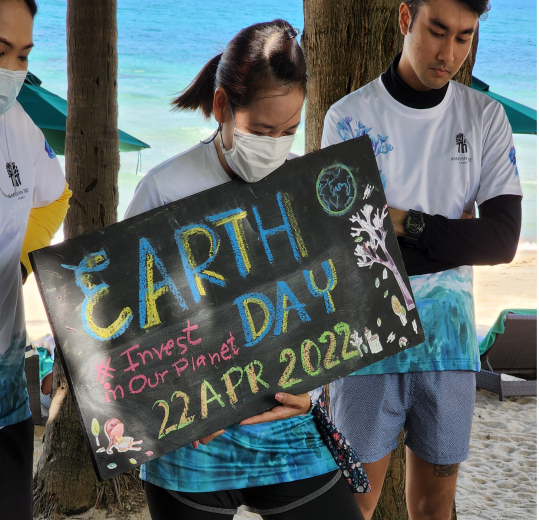
Effective communication channels can then be established to keep the local community informed and engaged in the hotel's sustainability efforts. Partnerships with local community organizations and businesses can be developed to support sustainability initiatives. In addition, local culture can be incorporated into these initiatives to demonstrate the hotel's commitment to the community's cultural heritage.
By building strong partnerships with local stakeholders, hotels can achieve sustainable outcomes that benefit both the hotel and the community, as well as building trust and support from the community.
Global Best Practices
Understanding the community
In order to effectively engage the community in sustainability, it is crucial to understand the interaction and relationship between local community and the hotel. Hotels can assess their current communication channels and partnerships with local community organizations and businesses.
In addition, the impact of the hotel's sustainability initiatives on the local community can be measured to determine if the hotel's engagement efforts are contributing to positive sustainable outcomes.
Some modes of assessment channels and indicators are:



Solutions
There is a myriad of solutions to design and implement successful community engagement programmes on sustainability from the hospitality perspective and some of them are:
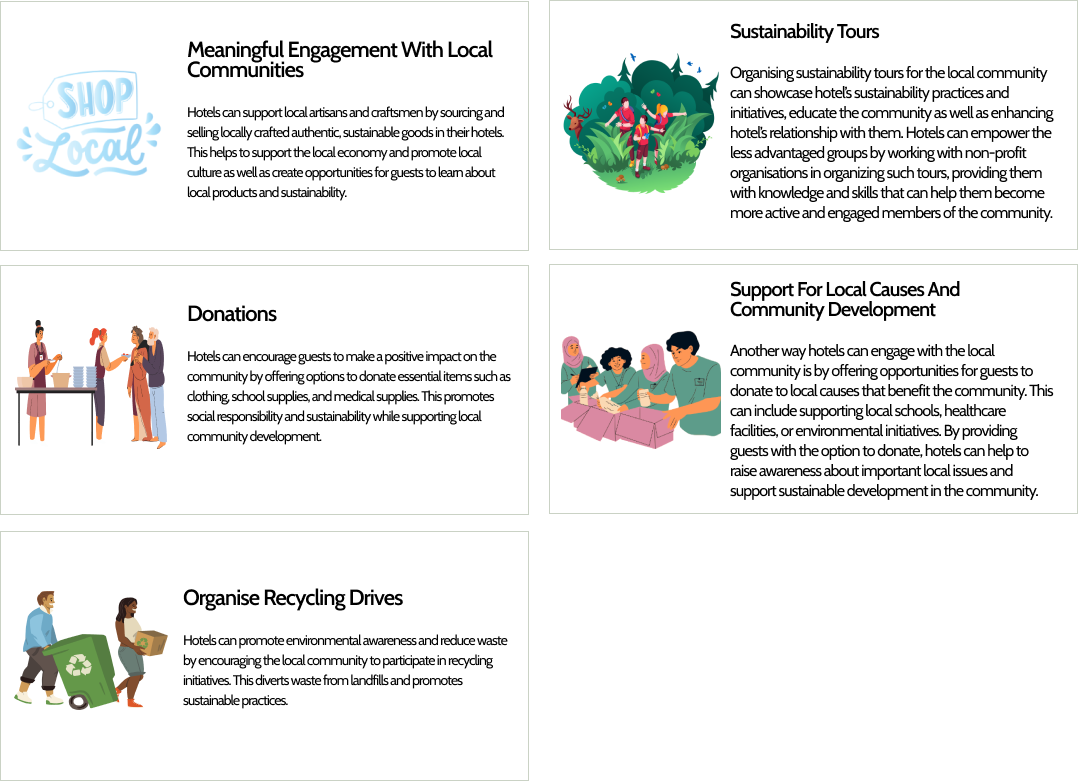
Education
Case Studies
International
Potato Head Bali Hotel - Farm-To-Table | Zero Waste
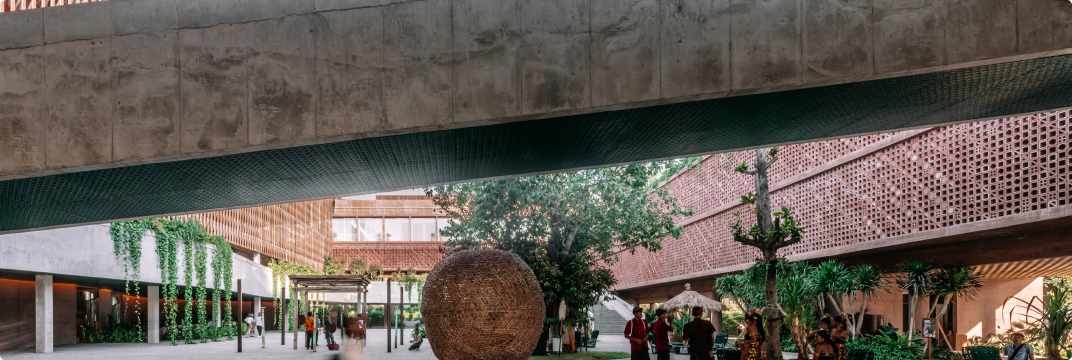
Sustainability is an integral component of The Potato Head hotel’s business strategy and community engagement. Located in Bali, the hotel has implemented several employee-led initiatives that promote sustainability and support the local community.
One of these initiatives involves encouraging the hotel staff to grow their own food on the hotel's land. This initiative serves a dual purpose of supporting the staff's families and providing assistance to the local community. The hotel delivers the produce to people, organizations, orphanages, and hospitals in need, promoting a sense of community and social responsibility.
The hotel has also created a thought-provoking installation called '5,000 Lost Soles'. This installation aims to raise awareness of the harsh reality of marine pollution by showcasing the flip flops collected along the shores of Bali. By drawing attention to the issue of marine pollution, the hotel hopes to inspire guests and visitors to take action towards preserving the environment.
Furthermore, the hotel supports the Green School's Changemaker program. This program sponsors young Balinese students to attend the innovative Green School for their entire period of primary and secondary education. Through this program, Balinese students are empowered to become change-makers in their communities, driving sustainable development and environmental conservation.
The Potato Head hotel also has a strong zero-waste initiative that promotes refillable amenities made locally. This initiative encourages guests to reduce their plastic waste by using refillable toiletries. By doing so, the hotel not only reduces its environmental footprint but also supports local businesses.
Overall, The Potato Head hotel in Bali serves as a prime example of sustainable and responsible tourism. By implementing employee-led initiatives, supporting the local community, and promoting environmental conservation, the hotel is driving positive change and inspiring others to do the same.
Reference: Community Engagement Initiative in the Potato Head Bali Hotel
Banyan Tree Group - Educate & Engage
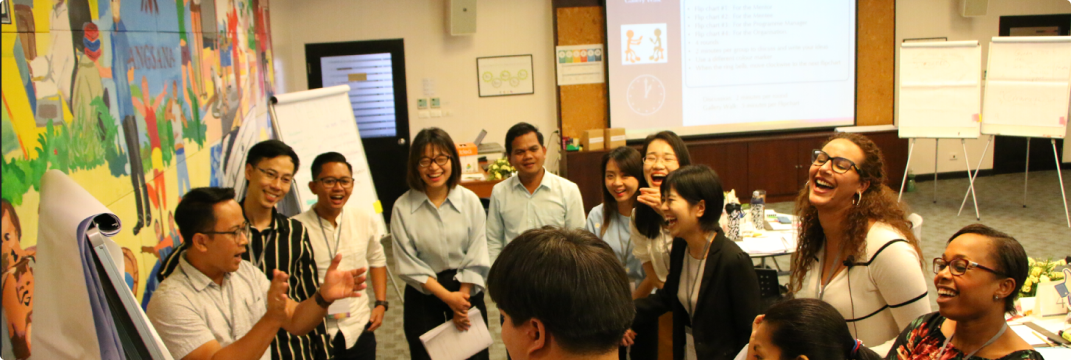
Banyan Tree Group, a leading hospitality company, started in 1994 with the first Banyan Tree resort in Phuket. Built on an abandoned tin mine, the resort’s regenerative mission and sustainability commitment have gained global recognition. With a focus on environmental and social responsibility, Banyan Tree Group has implemented various community engagement initiatives aimed at promoting sustainable tourism practices.
One of the most notable initiatives that Banyan Tree Group has undertaken is the Greening Communities program, which was launched in 2007. Through this program, Through this program, the brand has planted about 538,374 trees in local communities, sequestering approximately 205,103 tonnes of carbon.
Apart from planting trees, Banyan Tree Group also supports environmental awareness, remediation, protection, and restoration. The Group collaborates with local communities to conduct clean-ups, ecotours, walks and snorkeling activities, and they even have coral nurseries to support reef restoration efforts. In 2022 alone, Banyan Tree Group recorded 46,959 participants in community programs and 135,453 hours of volunteering since 2019. With the participation of 6,603 individuals from around the world, a total of 235 community clean-ups successfully eliminated over 23 tonnes of waste.
The Group recently introduced an expansion of the Laguna Phuket Kindergarten, known as Step-Up International Laguna Kindergarten (SILK). SILK provides a comprehensive and immersive education to students from various parts of the globe, emphasizing cross-cultural understanding, diversity, and inclusiveness. Alongside SILK, the Group has actively contributed to community education programs with the assistance of 13,515 guests and 8,380 associates.
Through its community engagement initiatives, Banyan Tree Group is demonstrating its commitment to sustainability and making a positive impact in the world. By promoting sustainable tourism practices and working with local communities, Banyan Tree is helping to ensure that tourism can be a force for positive change.
Reference: Banyan Tree Group Releases 2022 Sustainability Report | Banyan Tree Group Newsroom
Local
Resorts World at Sentosa - Education | Farm-To-Table
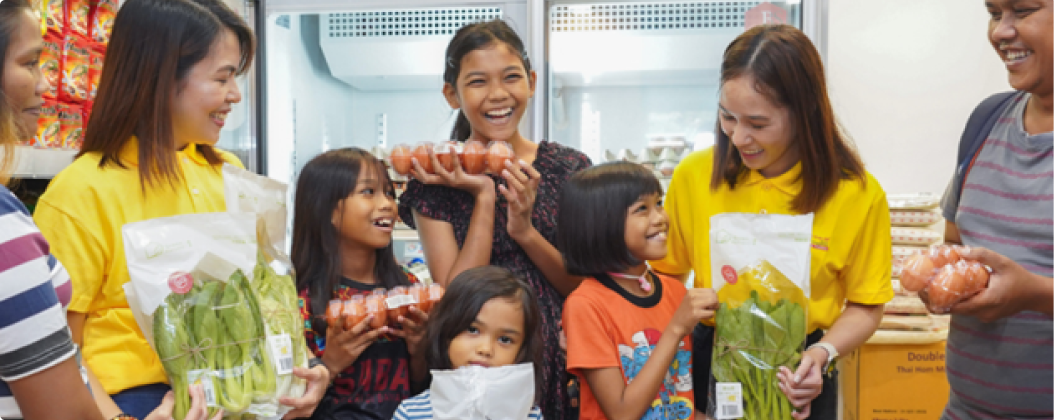
The pandemic heightened awareness not only for the environment but for social causes as well, calling for changes to the corporate social responsibility (CSR) framework to better serve the community. As a result, Resorts World Sentosa (RWS) has revamped its CSR efforts to prioritize education, food security, climate change, and supporting local businesses.
RWS established a long-term partnership with Food from the Heart (FFTH), a registered charity that feeds the underprivileged in Singapore. This partnership allows RWS to build on its existing business partnerships with local farms, creating a greater impact on the local industry and community.
Through the partnership with FFTH, RWS established the RWS Eat Well program, committing $300,000 over three years to fund and make available local fresh produce at FFTH’s four community shops located across Singapore. These community shops function as a minimart for beneficiaries, operating on a shop-for-free concept for beneficiaries to visit and choose any selection of food items throughout the year.
The initiative is expected to serve 2,400 lower-income families with nutritious food throughout the year, and the long-term partnership will offer more opportunities for employees to volunteer and engage with the community through food packing and distribution at the various shops.
PARKROYAL COLLECTION Marina Bay - Sustainability Tours & Events
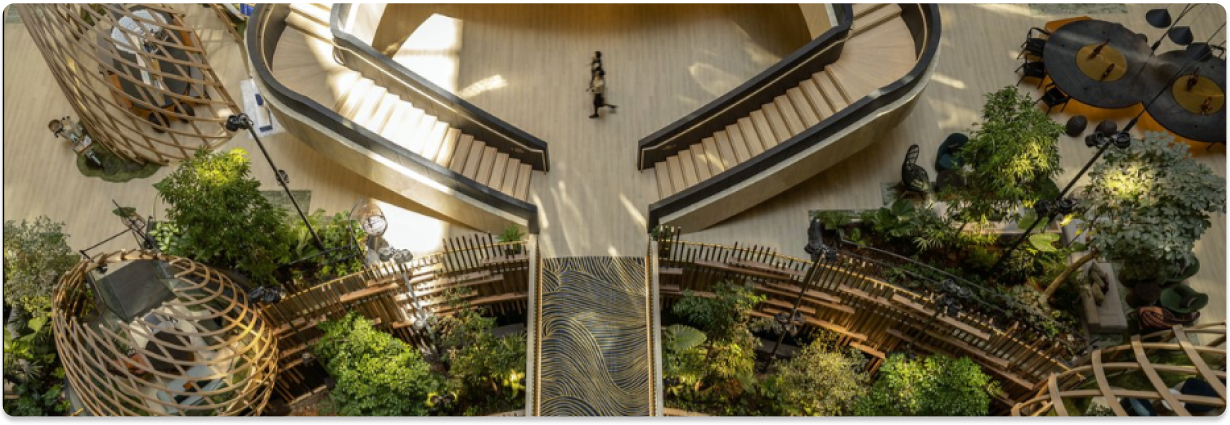
PARKROYAL COLLECTION Marina Bay is a pioneer in Singapore's hospitality industry, as the first 'Garden-in-a-Hotel'. The hotel is committed to achieving sustainability in all its operations and making a positive impact on the environment. They aim to be a global citizen of our planet and a champion for environmental responsibility, through continuous efforts to integrate sustainability into their operations.
The hotel offers workshops and sustainable hotel building tours to promote sustainability among the local and foreign communities, as well as teachers and students from the education sector. The sustainable hotel tours aim to showcase how the hotel practices sustainability across all operations. Local school children learn about the climate challenges ahead and the importance of living responsibly, while foreign hospitality students bring fresh perspectives and ideas on introducing sustainability in their respective countries' hospitality industry.
Apart from organizing sustainable hotel building tours, PARKROYAL COLLECTION Marina Bay actively participates in community events and green campaigns organized by the Ministry of Sustainability and the Environment, the National Heritage Board, and the National Environment Agency. The hotel also supports various partners' green campaigns, such as Grab's #GoGreenChallenge and Trip.com's #GreenTripChallenge, by sponsoring prizes. By supporting such campaigns, the hotel aims to remind guests of its positioning as a responsible provider of accommodation and facilities.
Through its efforts in promoting sustainability, PARKROYAL COLLECTION Marina Bay aims to inspire and encourage others to join in the cause for environmental responsibility. The hotel believes that the hospitality industry can play a significant role in promoting sustainable practices and creating a positive impact on the environment, and they strive to lead by example.
Reference: Environment, Economic, Social and Governance at PARKROYAL COLLECTION Marina Bay, Singapore (panpacific.com)
Monitor & Review
Monitoring how hotels engage with community is essential in understanding their environment and social impacts to the community. Through analysing the data collected, hotels can ensure that their economic, environment and social benefits are maximised and that the hotels are positively contributing to the economic well-being of the community.
Hotels depend heavily on their branding to attract customers and generate revenue. By monitoring how hotels engage the community, potential areas of concern can be identified timely, and corrective action can be taken proactively to prevent any negative impacts. This, in turn, helps to safeguard the hotels’ reputation and maintain a positive relationship with the community.
Therefore, it will be useful to implement a robust monitoring process to track how hotels engage with the community. Hotels can consider using the same assessment channel and indicators as understanding the community for monitoring. By doing so, hotels can ensure that they contribute positively to the community while minimizing any adverse environmental and social impacts.
